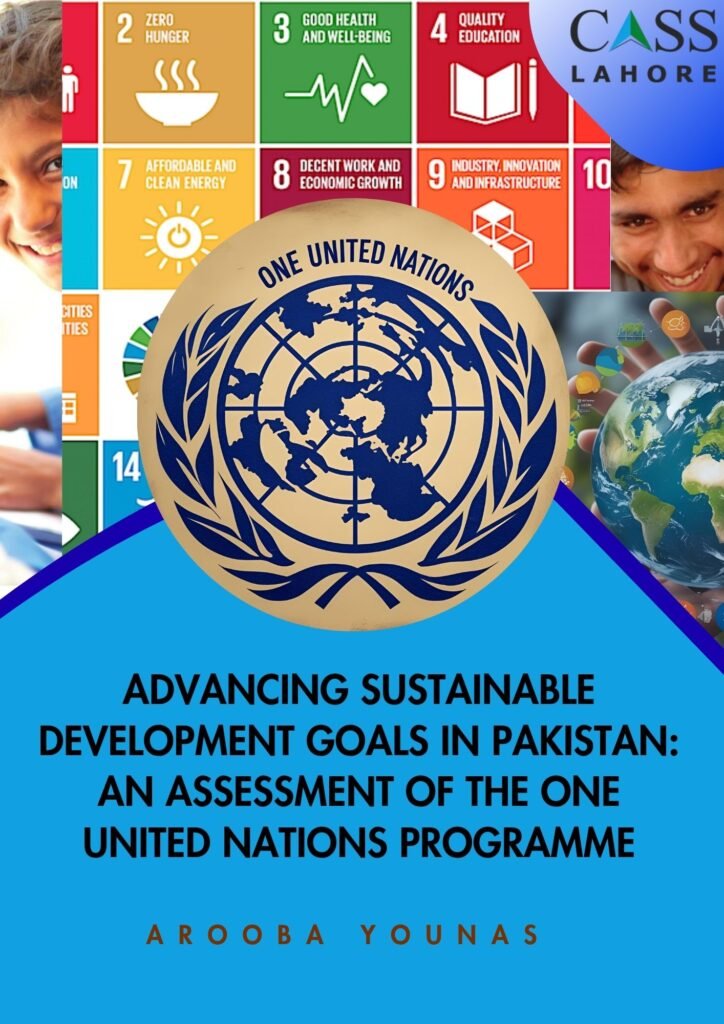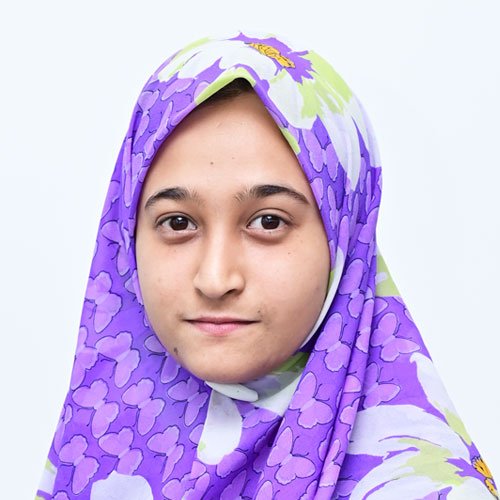
Situational Paper
ADVANCING SUSTAINABLE DEVELOPMENT GOALS IN PAKISTAN: AN ASSESSMENT OF THE ONE UNITED NATIONS PROGRAMME
MAY 2025
ABSTRACT
Pakistan became the first country to incorporate the Sustainable Development Goals (SDGs) in its National Development Agenda. The SDGs are also reflected in Pakistan Vision 2025. While Pakistan’s commitment to the SDGs is commendable, the SDG score attained by Pakistan shows a substandard performance. The United Nations (UN) has been helping Pakistan in its efforts to realise the SDGs through policy and technical support. The three One United Nations Programmes (UN-OP) in Pakistan are examples of UN’s support. The UN-OPIII was the latest programme to conclude in Pakistan. It was a medium-term strategic planning document focused on ten key domains, aiming to achieve the targets of SDGs and Pakistan Vision 2025. It has been seen through this study that the UN-OPIII helped Pakistan in disaster management and provided support in the domains of capacity building, policy advocacy, and technical assistance. Nevertheless, contextual challenges in the form of economic downturn in 2018, change in Pakistan’s government, and the COVID-19 pandemic marred the performance of the UN-OPIII as these changes were not reflected in the programme. Taking into account the UN-OPIII performance and the limitations faced, recommendations have been delineated towards the end of this study.
Keywords: United Nations, Sustainable Development Goals, Vision Pakistan 2025, UN One Programme
POLICY RECOMMENDATIONS
Emphasis on Selective SDGs
To allow economic growth, the, UN-OP could shrink its domain. Instead of participating in all the SDGs, it could focus on targets which require less financial investment as it is better to make effective change in one sector than to achieve unnoticeable progress in every domain. For this purpose, UN-OP can emphasise on education, health, and climate because the UN is already working at a greater scale in these domains.
Inclusive Local Feedback
To mitigate the problem of neglecting ground realities by international experts, the UN needs to enhance its active engagement with various stakeholders, including government agencies, local communities, and non-governmental organisations as there was less alignment of the UN-OPIII with the aspirations and demands of Pakistan’s provinces and regions. There is a need to establish a transparent and inclusive feedback mechanism to incorporate diverse perspectives in next programmes. Furthermore, it has to be ensured that the evaluation process is holistic and reflective of the unique challenges faced by different segments of the population as Pakistan is a diverse country and every region has its own problem.
Change in UN One Programme Time Period
To ensure the synchronisation of the UN-OP with governmental policies, UN Pakistan should formulate every UN-OP after the formation of the new government. The UN-OPs have a timeframe of four years which often do not synchronise with the tenure of the government of Pakistan and lead to deviation of interests by both the bodies.
Inclusion of Private Sector
Pakistan has a dearth of financial resources and requires capital to be able to achieve SDGs. Henceforth the private sector can be incentivised to achieve SDGs through the introduction of tax breaks, partnerships, and joint ventures. The companies that adhere to SDGs could be given reliefs. UN assistance could be taken to introduce policies in Pakistan that have encouraged private sectors in other countries, albeit after local consultation.
Author(s)

Arooba Younas
Research Assistant
CASS LAhore

The Centre for Aerospace & Security Studies (CASS) was established in July 2021 to inform policymakers and the public about issues related to aerospace and security from an independent, non-partisan and future-centric analytical lens.
CASS Newsletter
- Home
- About Us
- Research Domains
- Publications
- Events
- Gallery
- Contact Us
@2021 - All Right Reserved. Designed and Developed by PenciDesign




